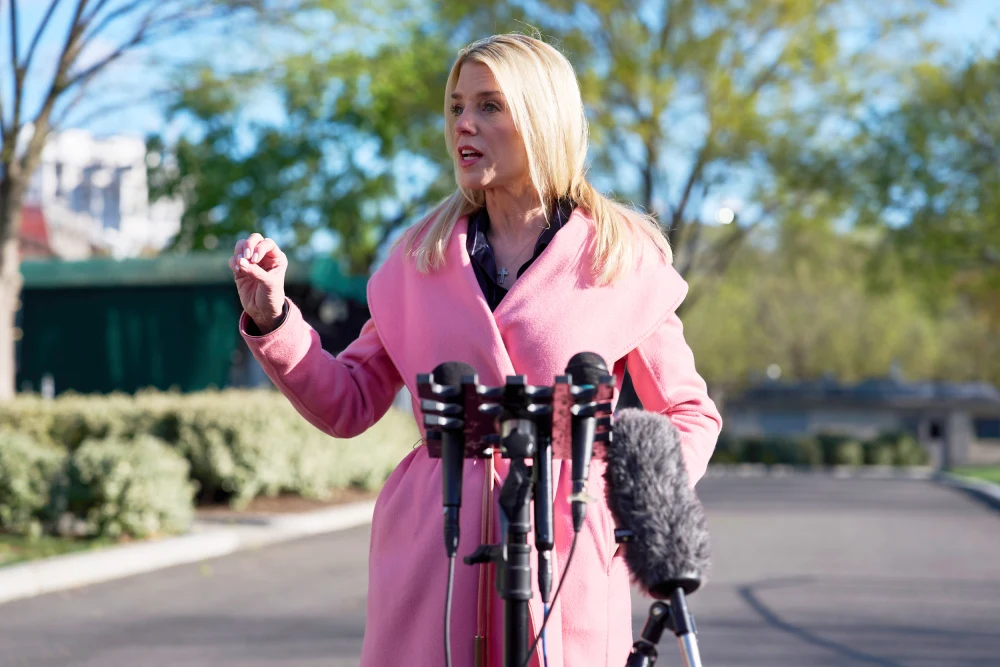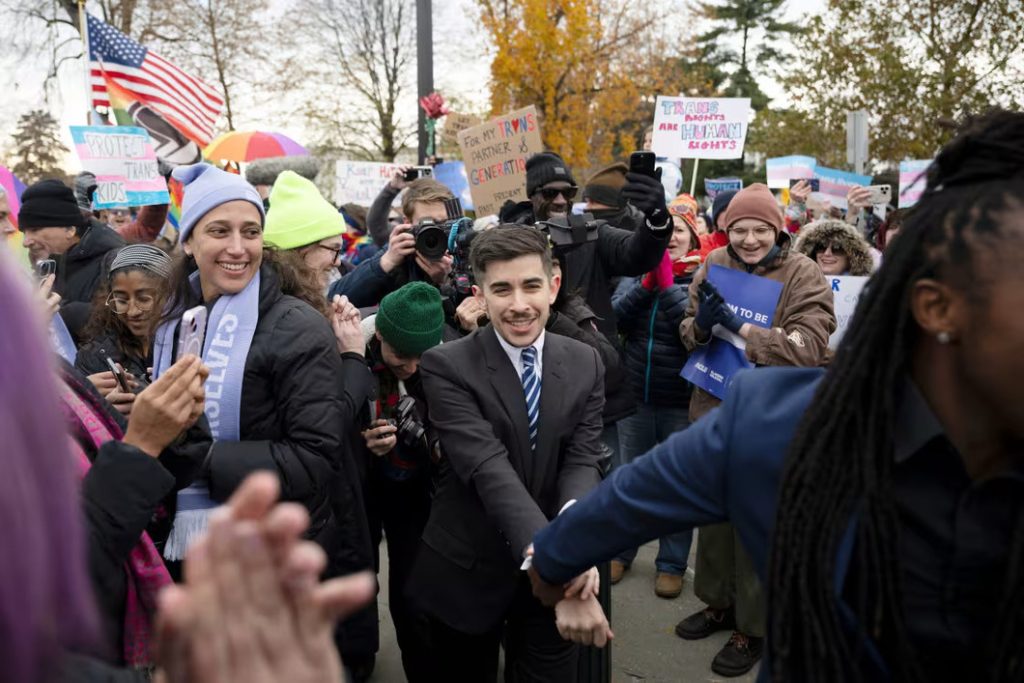Attorney General Pam Bondi issued a memo this week aimed at further restricting access to transgender health care for minors. In the memo, Bondi announced that the Justice Department would use various existing U.S. laws to investigate providers of such care, as well as drug manufacturers and distributors involved.
Bondi instructed U.S. attorneys to apply laws against female genital mutilation to investigate doctors who “mutilate” children “under the guise of care,” urging the prosecution of these actions “to the fullest extent possible.”
“I am putting medical practitioners, hospitals, and clinics on notice: In the United States, it is a felony to perform, attempt to perform, or conspire to perform female genital mutilation (‘FGM’) on any person under the age of 18,” Bondi stated. “That crime carries a maximum prison sentence of 10 years per count.”
Bondi further directed the Consumer Protection Branch of the DOJ’s Civil Division to investigate potential violations of the Food, Drug, and Cosmetic Act by drug manufacturers and distributors involved in “misbranding” by making false claims about the on- or off-label use of puberty blockers, sex hormones, or other drugs used to facilitate a minor’s gender transition.

She also instructed the Civil Division’s Fraud Section to look into possible violations of the False Claims Act by doctors who submit “false claims” to federal health care programs for “non-covered services related to radical gender experimentation.” One example she provided was a physician prescribing puberty blockers for gender-transition care but reporting it to Medicaid as treatment for early-onset puberty.
Robin Maril, an assistant professor of constitutional law at Willamette University in Oregon, pointed out that Bondi’s memo does not change any existing laws. She emphasized that doctors will not be violating the law by continuing to treat transgender minors in states where such care is still legal. She also noted that Medicaid fraud and defrauding the government are already criminal offenses.
“The bulk of this is just showing how they’re going to use resources and investigate,” Maril explained. “That’s not a law change. It’s meant to create a chilling effect on physicians providing necessary care, making them fear that their actions will be framed as chemical and surgical mutilation of children.”
She added that the memo’s request for whistleblowers to report “knowledge of any such violations” could further instill fear in doctors about being reported.
It’s unclear what procedures would be considered female genital mutilation “under the guise of care” based on Bondi’s interpretation of U.S. law. The FBI defines female genital mutilation as the “partial or total removal of the external female genitalia or other injuries to the female genital organs for non-medical reasons.”

Transition-related care for minors can include various treatments, such as talk therapy for younger children, puberty-blocking medications for adolescents, and hormone therapy for older teens. Bondi’s memo specifically references gender-affirming surgeries, which are generally not recommended for minors. However, in rare cases, older teens may undergo a double mastectomy, or the removal of the breasts.
It is also unclear whether Bondi’s directives would conflict with federal and state anti-discrimination laws. For example, a provision in the Affordable Care Act prohibits physicians offering federally funded services from discriminating based on sex. The Biden administration previously interpreted this provision to include protection against discrimination based on gender identity, but the Trump administration rescinded that interpretation in February. Some advocates argue that the provision’s protections, along with certain state nondiscrimination laws, still apply.
Since the 1980s, medical providers have prescribed puberty blockers, which temporarily halt puberty, to children who experience early puberty, according to Cedars-Sinai Medical Center. These blockers have also been used off-label to treat transgender adolescents since the 1990s.
Major medical organizations in the U.S., including the American Medical Association, the American Academy of Pediatrics, and the American Psychological Association, support access to transition-related care for minors and oppose efforts to restrict it.
Despite this, Bondi’s memo refers to transition-related care as “radical gender experimentation” and cites research from an advocacy group that opposes gender-affirming care for minors. According to the group, 14,000 children received treatment for gender dysphoria—distress caused by a mismatch between one’s gender identity and sex assigned at birth—between 2019 and 2023, with 5,700 of them undergoing surgery.
However, transgender advocates point out that the rate of breast surgeries among cisgender adolescents is significantly higher. For example, in 2011, over 14,000 breast reduction procedures were performed on adolescent boys in the U.S. to treat gynecomastia, a benign condition causing enlarged breast tissue, according to the American Society of Plastic Surgeons.
Bondi’s memo is part of the administration’s ongoing efforts to limit access to transgender health care. Shortly after his inauguration, President Donald Trump signed a broad executive order aimed at restricting transition-related care for minors. The order sought to prevent federal funding for such care and threatened to withhold grants from hospitals and medical universities that provided it. At least two judges have temporarily blocked the order from taking effect.
In recent years, 27 states have passed laws limiting access to transition-related care for minors. The Supreme Court is expected to soon rule on a lawsuit challenging such a restriction in Tennessee, a decision that could impact minors’ access to care nationwide and potentially affect transgender adults’ care under federally funded health programs.

